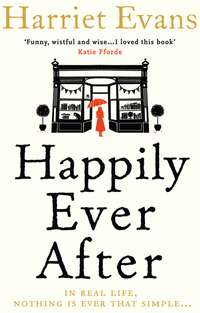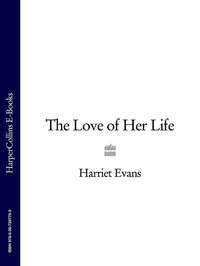
Полная версия
I Remember You
‘Yes,’ said Tess. ‘It is.’
‘Great class today, Tess, thank you,’ said Andrea, popping up behind Jan, while Tess clutched at her hair and looked down at her jumper. ‘So interesting. I can’t wait to tackle my essay on Dido. Marvellous stuff!’
Next to her, Diana Sayers rolled her eyes. ‘Come on,’ she said. ‘I said I’d walk home with Carolyn. She’ll be waiting.’
‘Carolyn?’ said Andrea. ‘Carolyn Tey? Huh.’ She shook her head.
‘Ooh, Andrea,’ said Jan.
‘What’s wrong with Carolyn Tey?’ Tess asked, curiously.
‘Nothing, dear,’ said Jan. ‘Andrea’s just being a bit childish, that’s all.’ Tess followed her gaze out over the old polished floor of what once had been the Great Hall of the house, and saw Carolyn helping Leonora Mortmain out of the door. As usual, Leonora Mortmain carried no books, no notepad. She didn’t do any of the coursework, she didn’t answer any questions or contribute to any debate. She just sat and stared at Tess, almost unblinking, with a dark-eyed intensity written on her still, hawk-like face that Tess could neither become used to nor fathom.
The other members of the course were half locals, half actual real people, as Tess had started to think of the other hapless students who were unconnected with Langford. And the majority loathed Leonora Mortmain, her superiority and coldness, her seemingly callous determination to rip the heart out of the town. Carolyn Tey, whose father had been her local solicitor, was practically the only person in the class who would talk to her. But Carolyn was a dreadful snob, as Diana was always pointing out. Wasn’t her father the person who, fifty years ago, bought old Mr Crispin’s place Apple Tree Cottage, and renamed it Apple Tree House? People had long memories here.
‘Childish?’ Andrea exploded. ‘Childish, is it, Jan Allingham, to care about what happens to your bloody town? I don’t think so! The planning meeting’s next Monday, and you know what she’s trying to do? That woman? Move it to when we’re all supposed to be in Rome, on our trip and send her solicitor along instead! She’s said she has a minor operation on the original day. My eye. So either we cancel the trip, which is all paid for, or we miss the meeting.’ She fingered the poppers on her quilted jacket. ‘Honestly, I don’t like to speak ill of anyone, but that woman—!’ She paused, and said petulantly, ‘Why’s she coming on the trip anyway?’
‘She’s on the course, like you all are, she presumably wants to see Rome.’
‘I don’t believe it, I’m afraid,’ said Andrea. ‘She wants to cause trouble. And ruin everyone else’s fun.’
Beside her, Diana nodded in sympathy, and Jan, who was rather bossy but liked to think of herself as fair to her fellow man and woman, looked thoughtful, as if she wasn’t quite sure what to say next. Tess clutched her cloth, not sure if it would be rude to go back to wiping the board, as the rest of the class milled slowly out. Deep down, though, she couldn’t help but agree with Andrea. Why was Leonora Mortmain coming to Rome?
‘Well,’ Jan said, after a pause. ‘I very much like your jumper, dear. I might have to get another one, in green.’
‘Oh—thanks.’ Tess patted the jumper awkwardly. She wasn’t any good at accepting compliments, and indeed she wasn’t sure this was one, really, since it was a fifty-five-year-old woman telling her she wanted to copy her style. Still, it was sweet of her. ‘Remember, next week I want those last essays about Augustus in!’ she called to the retreating backs of her pupils, glad of the chance to change the subject.
‘Bye, Tess!’ Liz called, slinging her bag over her shoulder. ‘Great class. Maybe see you in the pub over the weekend?’
Tess found Liz’s friendly behaviour daunting. ‘Sure!’ she called back. ‘Thanks, Liz!’
‘Well, I’m off.’ Diana appeared, winding a silk scarf around her neck. ‘Thank you, Tess, that was very interesting.’ She glanced at Jan and at Andrea, who was still muttering mutinously next to them. ‘Carolyn’s obviously gone on. I’ll walk out with you, shall I?’
‘Oh, thanks,’ said Tess, gratefully. She grabbed her bag.
‘We’ve got committee tomorrow,’ Andrea was saying to Jan. ‘Are you still coming?’
‘Of course I am!’ Jan cried indignantly. ‘Andrea, we need to stand shoulder to shoulder! Not face each other as enemies, like…that Roman general, at the gate! Oh, I’ve forgotten his name.’
Tess rolled her eyes and followed Diana towards the door.
‘I saw Adam last week,’ Diana said unexpectedly, as they walked down the drive, Diana pushing her bike. ‘He told me he spent last Friday being your paramour.’ Tess smiled.
‘He told you that?’
‘I’m his godmother, Tess. I do occasionally speak to him, you know. The old boyfriend turned up then, did he?’
Her tone was sympathetic. Tess said, ‘Yes. I owe Adam, big time I owe him.’
‘That’s what friends are for, I suppose,’ said Diana, in a curious voice. ‘Do you miss him?’
‘Adam? I—’
‘No, Tess! I meant the old boyfriend.’
Tess considered for a moment, the only sound around them the dripping rainwater of the recent shower along the driveway, and their steps towards the main gate. ‘Miss him? Not really. I miss the other things.’ She gestured with her hands, rather awkward at saying this to Diana Sayers. ‘You know.’
‘Well,’ said Diana, with her simple, disarming honesty. ‘Isn’t that nice? Not to miss him.’
‘Oh,’ said Tess, taken aback. ‘Yes. I suppose so, yes.’
‘So, how are your parents?’ said Diana, switching topic abruptly. ‘I must ring your mother, it’d be lovely to see them.’
‘I’m going down week after next, that’s funny,’ said Tess. ‘On the Saturday, just for the night.’
‘Isn’t that Adam’s birthday?’ Diana said. ‘He was talking about it the other day. Said he was going to have a barbecue, up at the cottage.’ She cleared her throat. ‘It’s good for him to have people round. I worry he doesn’t…’ She trailed off, wrinkling her forehead.
Tess remembered, with slow horror, that Adam had mentioned the barbecue to her the previous weekend, not once but twice. But, in the way that two sides of your brain can happily know that you’re doing two totally separate things and never does one talk to the other, now she realized with horror she’d booked the train tickets down to Devon, and happily agreed with Francesca that they’d go to Adam’s birthday together…Damn.
‘Oh. God, that’s so annoying,’ Tess exclaimed. ‘The tickets are booked—I have to go—God! Why don’t I think!’ She tapped herself on the forehead.
‘Don’t worry,’ Diana said, in quelling tones. ‘It’s Francesca Adam was worried about, you know.’
‘Yeah…’ Tess began, knowing that her not taking Francesca would be a big deal; he treated her a bit like a child, sometimes. When he wasn’t shagging her, that was, she thought meanly. She opened her mouth to try and explain this but then, from out of nowhere, a black Jaguar drove silently past them. Tess and Diana both craned their necks to see who was in it.
‘Well, I never,’ said Tess. ‘What’s Mrs Mortmain doing in that incredible car with that man?’
He was a large man, sleekly tailored in an effort to hide his burgeoning stomach, and he stroked his black hair back from his face as he leaned forward towards his fellow passenger, smiling ingratiatingly at her. She, however, sat upright, her mouth set.
‘Oh, Tess,’ said Diana, with a sigh. ‘He’s Jon Mitchell, the developer. He’s the one who wants to buy the water meadows. He owns Mitchell’s. That chain of DIY stores.’
‘My goodness!’ cried Tess. ‘That’s him?’ She watched the car disappear, and then said, darkly, ‘I don’t know how she lives with herself, that woman. I really don’t.’
‘It’s easy to have principles when you don’t have to apply them,’ said Diana softly. Tess spun round to look at her.
‘What do you mean? You can’t say you agree with her? With—what she’s trying to do to the town?’
‘Tess, the last new shop to open here was a tea shop, called Ye Tudor Tea Shoppe,’ said Diana, and there was a note of sharpness in her voice.
‘So?’ said Tess, who liked Ye Tudor Tea Shoppe. It had waitresses in old-fashioned uniforms, and everyone spoke to each other in a hush. ‘It’s Langford! What’s wrong with that?’
‘What’s wrong with it is that there’s no community hall here, and it costs four pounds to buy a pint, and if you grew up here and you want to buy a house, forget it, because a two-bed cottage costs about three hundred thousand pounds, and there are coach parties wandering the streets practically twenty-four hours a day,’ said Diana. ‘Look, I run a B&B in the summer, I’m as guilty as the rest of them. But we live in a community, not a heritage site, and I can’t one hundred per cent blame Mrs Mortmain for trying to breathe a bit of life back into the town, even if it is going to end up driving some of the tourists away.’ She paused. ‘Don’t tell the others, but I don’t care if I never see another tourist again.’ She gestured out, towards the water meadows. ‘I’d rather there was a supermarket and a John Lewis out there. I’d be able to get some decent curtains, for starters. And my godson and his friends—they’d have jobs, for another thing.’
Tess had never heard the usually reserved Diana talk like this before. So she thought Adam didn’t have a job because there wasn’t an out-of-town shopping centre here? Tess didn’t know what to say. She looked out towards the disappearing car, the gates of the college. ‘I—I just don’t see why it has to be on the water meadows. And why we can’t act better as a community, that’s all. It’s nice living here,’ she said weakly, thinking of what she’d left behind. ‘It’s safe and cosy and—and nice.’
Diana gave her a strange look. ‘Nice? It’ll be dead in a few years if we’re not careful.’ She shook her head. ‘Forget I spoke. I don’t know what I’m talking about. Just tired, I expect.’ She collected herself, almost as if she was aware she’d said too much, and then got on her bicycle. ‘Bye, Tess,’ she called, leaving Tess in the middle of the driveway, holding her bag of books. She watched her go, bemused, and then set off back to Easter Cottage.
Tess told Francesca about this conversation, as Francesca mashed up the ingredients for mojitos in a large mixing bowl. ‘Well, she’s right, I don’t think all that tourism is good for the town in the long run. But who knows what the future holds,’ Francesca said, licking mint and sugar off her fingers. ‘But I’m telling you, when my six months is up, I’m not going back to work in the City, that’s for sure. Not that there’ll be any jobs there anyway.’
‘No?’ Tess handed her a glass, watching her curiously from the doorway of the kitchen.
‘No way,’ said Francesca. ‘Mmm. That’s nice. I’m staying right here. Trouble is, there’s nothing to do round here if you’re not a tourist or someone who wants to study stupid things like History of Art or Roman Civilization…’ She smiled. ‘I’m joking. But there is nothing else to do. So actually, I did something about it today.’
‘Really?’
‘Yep.’ Francesca’s eyes sparkled. ‘I’m helping Ron and Andrea with the campaign, volunteering. You know I actually trained as a lawyer.’ Tess nodded. ‘Long before I got sucked into the evil world of finance. I’m looking at the legality of what they’re proposing to do, because I’m sure there’s something fishy going on.’
‘Wow.’ Tess clapped. ‘That’s brilliant. Er—have you told Adam?’
‘No. Why?’
‘Don’t know why,’ said Tess. ‘It’s just—he’s so weird about the campaign. Have you noticed?’ She felt as if she were betraying something as she said this, but it was true.
‘He’s weird about it because he’s behaving like an adolescent,’ Francesca sounded firm. She poured a large slug of rum into the bowl. ‘You know, I love Adam.’ She paused. ‘I don’t mean like that. I—’ She smiled, mistily. ‘I really like him. But he’s got to grow up. Fine to stay here all your life, but not fine to use it as a stick to beat other people with when they dare to disagree with you about anything connected with Langford.’
Francesca had a way of saying things which summed up what Tess wanted to say so perfectly but couldn’t articulate without using five times as many words. Tess laughed. ‘I’d love to hear you say that to him.’
‘I have,’ said Francesca, and she smiled her cat-like smile. ‘He knows I’m right, he just doesn’t see it yet. But he will.’ She nodded and for some reason Tess shivered, as if a goose had walked over her grave. ‘I’ve got him where I want him. He just doesn’t realize it yet.’
‘Oh, Francesca—’ said Tess, not sure what to say next, because she knew Adam well, so well, knew how stubborn he was, how little he liked being told what to do, manipulated, which was why she thought he was such a bloody-minded idiot, still living in his mother’s house, still working shifts at the pub and the museum. ‘Please don’t get your hopes up with him. He’s…’ She said frankly, ‘He’s never going to change. He’s so stubborn.’
Something flickered across Francesca’s lovely face, but she said nothing. Tess got up. ‘What are we having tonight?’
Francesca looked blank. ‘What do you mean?’
‘Well, as well as the mojitos,’ Tess said. ‘Not that they won’t be lovely…’ She trailed off.
‘Dunno,’ said Francesca. ‘I haven’t cooked, if that’s what you’re thinking. I’ve made cocktails and it took bloody ages. You could have a bit of appreciation for what I’ve done, thank you very much.’
Tess ran over to her and hugged her, feeling her bony arms, her hand on her back. She was fragile, she thought, she’d be so easy to crush. ‘I do have appreciation for what you’re doing. I just assumed—completely insanely, obviously, that you’d made supper as well.’
‘No,’ Francesca said. ‘My plan was, we get trashed and then do karaoke with these cool new karaoke DVDs that I ordered from Amazon.’
‘Great idea,’ said Tess. ‘And we can have the rest of that shepherd’s pie I made yesterday. I’ve got some peas in the freezer.’
Francesca rolled her eyes, opened her mouth as if she would say something, then shut it. She smiled at Tess. ‘Bless ye, old lady. Come on. Give me your glass.’
CHAPTER TEN
Jan Allingham was in a flap. She was usually a rational woman, with an unshakeable faith in humanity, but when an event occurred to test this faith, she was conversely distressed out of all proportion.
She hated being late, even if it was only by a couple of minutes, and she was going to be late. If someone said ten o’clock, they meant ten, not five past ten. It was one of the things that drove her absolutely mad about her dear husband Jeremy, though time—thirty-five years of marriage—and wisdom—fifty-five years on God’s green earth—had taught her to accept with as good a grace as possible things like Jeremy’s breaking of his solemn vow that he would pick her up from the garden centre outside Thornham at twelve thirty. No, she had learned simply to smile and say, ‘Don’t worry, dear, thank you for coming.’ Conversely, of course, he was always absolutely furious if she was over a minute late to pick him up from anything—with the righteous indignation of the truly guilty.
It was thanks to Jeremy that she was going to be late for the committee meeting of the Save the Water Meadows Campaign. Bloody Jeremy, who had said she shouldn’t get involved, that it was asking for trouble, that it was putting other people’s backs up. Accept the inevitable, he’d said, looking at her over his copy of The Times that morning.
‘It’s going to happen,’ he said, his ruddy face creasing into lines as he munched his toast. ‘It’s inevitable, I’m afraid, dear. Market forces.’
Jan didn’t care about market forces. She whisked some cling film over the remains of the Galia melon pieces she’d had for her breakfast. ‘What’s that got to do with anything?’ she demanded, pushing the fridge door shut.
‘It’s got to do with the council and the Mortmains and a whopping great company that’s used to having its own way, that’s what they’re used to.’
‘Leonora Mortmain’s an evil old woman,’ said Jan, pettishly.
‘That’s the trouble with you lot,’ said Jeremy, putting down his paper. The phrase you lot infuriated his wife. ‘You think because she’s old and grim-looking and eccentric that she has no real power. She’s one of the most important landowners around here, she wields enormous influence. Just because she’s a woman and she hasn’t invited you all round for tea and cakes doesn’t mean she doesn’t know what she’s doing. She’s an impressive woman, I’ll give her that. Intelligent, too.’
Jan paused in her wiping down of the draining board. ‘How do you know that?’ she said, curiously.
‘Met her a few months ago when I had to value a couple of the cottages down towards the water meadows,’ said Jeremy. ‘Had a bit of a chat, actually. I told you.’
‘No, you didn’t,’ Jan said, exasperatedly. ‘You had a bit of a chat? With Leonora Mortmain? Typical you, Jeremy, that you don’t even think to mention it.’
‘Well, I did, and she was rather interesting. I reckon she was quite a gal in her time.’ Jan frowned. ‘Honestly, love. Something quite special, I bet she was popular with the…’ Jeremy recalled himself. ‘Anyway, her family’s lived round here for three hundred years, did you know that? Used to play in the meadows when she was a little girl, with the gardener’s son, or the vicar’s son or something,’ said Jeremy reflectively, picking up his paper again. ‘Got quite misty-eyed about it, in fact.’
Jan couldn’t imagine black-clad, iron-jawed Leonora Mortmain as a young girl, let alone one who did anything as fanciful as playing in fields. ‘Look,’ she said, whipping Jeremy’s breakfast plate smartly away from under him, much to his surprise. ‘She ought to know better. I didn’t move to Langford to spend my final days in a suburb of an out-of-town shopping centre. I moved here—we moved here,’ she amended hastily, ‘so we could live in a beautiful, historic town and enjoy all the amenities.’
‘Greg wants it to happen,’ said Jeremy, grabbing another piece of toast and defiantly buttering it on the tablecloth. Greg was Jeremy’s junior surveyor, who was rare in Langford, in that he’d lived there all his life. ‘Says it’s just what we need. Bit of reality. Plus he’s right, we don’t have a decent DIY shop round here for miles.’
‘Greg’s talking rubbish,’ said Jan firmly. ‘So are you, Jeremy. I know we need more jobs in the town, and it’s too expensive, and everything, but we don’t need that. Don’t take a sledgehammer to crack a nut.’ She thumped her hand dramatically down on the walnut kitchen surface, and looked out of the window of the bungalow towards the spire of St Mary’s church.
The Allinghams had moved to Langford from Southampton, seven years previously. Their youngest daughter Jenny had finally left home, and Jeremy had been offered a job in the local chartered surveyor’s office, four days a week, by an old friend who was retiring. It was to be his last job before he himself retired, and the plan, as far as he was concerned, was to spend more time playing golf and reading Robert Ludlum thrillers. In a decent place, where there was a decent pub within walking distance.
Jan had different ideas, however. She had, along with many children around the country, come on a school trip to the town and the Roman villa when she was a girl, and had fallen in love with the place. It had seemed to her, mired in suburbia, the height of Englishness, for her outwardly practical demeanour concealed—as is so often the case—an intensely sentimental, romantic soul. That, plus an unshakeable faith that what was right would always prevail, made her an optimist of the most terrifying order. Here, untrammelled by ugly modernity, was a place so unchanged that Charles I might well recognize the town that had hidden him, at great danger to itself, from the Roundheads. Here, too, was a high street down which Jane Austen had walked, where she would still feel at home. Living here was like a dream come true for Jan. Yes, of course, one had to live in modern times, but she had her hessian ‘Langford’s Own Plastic Bag’ bag for shopping at the farmers’ market, didn’t she? And didn’t she get the bus everywhere she could, instead of using the car, and didn’t she recycle everything, even though it meant driving the green box down the road as the recycling truck never seemed to make it into the cul-de-sac?
‘It’s the realities of the modern global economy,’ said Jeremy, taking his plate back firmly, and putting the paper down on the table. ‘If you want to be able to fly to Rome to waft around looking at old dead statues, you have to accept there are downsides.’
‘Look, I’ve got no problem with the modern global economy,’ said Jan, who had spent many years working for a luxury cruise company and was well aware of ‘market realities’, as the firm had been wont to call them just before they hiked up the prices. ‘And that’s rubbish, Jeremy, I’d go to Rome by coach if I had to, that’s how we went to Italy for our honeymoon, remember? It’s more that I don’t believe for a second this is going to help the town.’
Jeremy turned over a page of The Times. ‘Ah,’ he said, in placatory tones. ‘Twenty-three degrees in Rome. When are you off?’
It infuriated Jan when Jeremy patronized her like this. She had worked as long as him. Just because she was a woman, and a woman in her fifties who liked a tea shop and who fussed a bit—she knew she did, she tried not to—why should that mean that her opinion was risible? Her opinion and so many other women like her. It was sexism, that was what it was. She bit her tongue, as she had done so often in their marriage. ‘For every one job it creates, there’ll be four tourists who don’t come to Langford because they’re put off it by this horrible development, and that’s potentially far more jobs lost, not to mention what a violation of planning laws and everything else it is.’ She was getting worked up. ‘And I hate that attitude, Jeremy, that one that says it’s either or, that either you’re a fuddy duddy who’s clinging to some old tradition and can’t see the modern world around them or else you’re a dynamic thrusting young individual. It’s rubbish. This is about community!’ She banged her hand on the surface again. ‘It’s about the heart of the town! It’s about…’ She ran out of steam and looked at her watch. Damn it.
Jeremy said, after a pause, ‘I thought we drove to Italy for our honeymoon. We didn’t get the coach, did we? I had the new Austin. Green. Nice car, that was.’
‘That,’ said Jan awfully, picking up her bag, ‘is not the point, Jeremy. I have to go to my meeting now. Goodbye.’
The conversation with Jeremy—who was a fool, she had to remind herself—had made her late, and now she would be late for Ron and Francesca, the dear girl, who was so sweetly offering to help with the campaign. Jan hurried out of Water-meadows, the sweetly inaccurate and inappropriately named cul-de-sac where she lived, walking briskly towards the pub. She cut behind the warren of backstreets that formed the old heart of the town, where the lanes twisted and curled and where many a visitor to the town had found himself ending up by the old town walls that led down to the meadows, rather than the high street. Jan was a local though, of course, and it was with no little pride that she knew how to navigate her way through the maze, coming out at the back of the garden to Leda House, Leonora Mortmain’s home. The garden was huge for a townhouse; though she was trying something between a walk and a trot, Jan glanced up as she always did, at the rose that climbed up the back of the house, and took in the sweet smell of the garden stocks in the air.
Jeremy’s words rang in her ears. What was he doing, chatting away to Leonora Mortmain, and not mentioning it to her? For starters, she’d do anything to see inside Leda House (apparently, there was a Faberg?egg in the drawing room!). The idea of a teenage Leonora Mortmain, gambolling in fields with the butcher’s son or whoever, was ridiculous. It struck her then, and she slowed down, that it was probably something to do with the fact that she just didn’t seem like the kind of person who’d ever been a child. Much less been happy, been in love, got drunk, kissed someone she shouldn’t. Unimaginable, really! Jan thought of Jeremy suddenly with a smile, she didn’t know why. She turned the corner, onto the high street.







